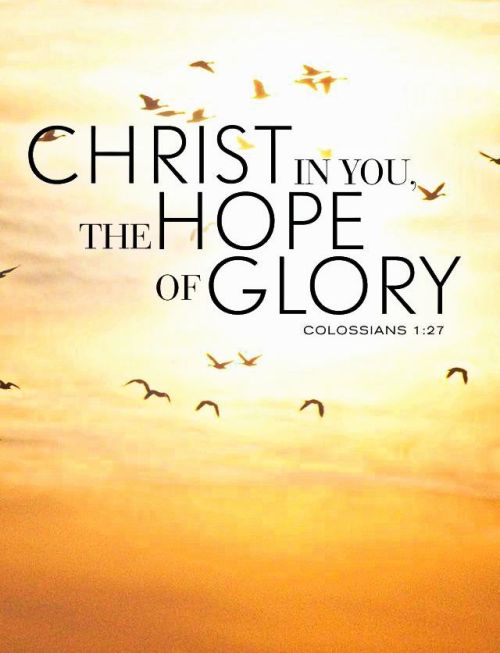#gentiles
Colossians 1:27 NIV
27To them God has chosen to make known among the Gentiles the glorious riches of this mystery, which is Christ in you, the hope of glory.
Post link
05/06/2022
How didn’t they PhariSEE that big crowd??
JOKE-OGRAPHY:
In these verses, some Jewish teachers get some Jewish people together and call out Paul as a lamewad. Paul, undiscouraged, acknowledges that the Jews, as God’s chosen people, deserve to hear His Word first, but those that don’t listen to it will be left behind as the message spreads to the rest of the world, even to the gentiles (non-Jews). In this cartoon, Paul illustrates this point by immediately turning to a massive crowd of gentiles and addressing them as “ladies and GENTILEmen”, replacing the “gentle” in “gentlemen” with “gentile”, since they’re gentiles. CLASSIC!
Post link
It’s easy to dismiss the Pittsburgh shooter as crazy or insane, but it is not responsible to do so.
To dismiss his evil as a symptom of insanity is to dismiss the responsibility that society holds. We want to call him crazy because we want to distance ourselves from his evil, we want to see ourselves as above it.
But his violent act is a symptom of a larger problem. The vast majority of people do not commit mass murder, but the fact of the matter is that many people in our society do hold the same sorts of antisemitic and xenophobic ideas. The Pittsburgh shooter knew other people who hated Jewish people and refugees, and it helped him feel justified in his beliefs.
The fact of the matter is that although this is an extreme example of antisemitism, antisemitic acts have actually been on the rise in the United States and abroad.
We have white supremacists and neo-Nazis marching in the streets. Do you really believe this is the work of one isolated madman?
On many occasions, non-Jews have asked me how exactly I’m Jewish. They know a little about Jewish law, just enough to know that if someone’s mother is Jewish, they’re a Jew too. They might know that being Jewish has a religious component and an ethnic one as well and that these two components may not match up.
So they ask questions like “which of your parents is Jewish?” or “so, are you like, ethnically Jewish or is it just your religion?” or “so, are you like … Jewish-Jewish or???”
This is not an attitude I’ve encountered much in the Jewish community. I have hardly ever been asked by another Jewish person to tell them just how Jewish my lineage is or asked if I’m a convert or anything like that or something invasive about circumcision. In my experience, it just doesn’t come up that much except in matters of marriage and minyanim and battei din. The questions are much more frequently along the lines of “did you go to Jewish day school?” or “what synagogue do you go to?” or “are you shomer negiah?”
But non-Jews seem to be unduly concerned with this question. They want to know just how Jewish exactly are you really? and the person being questioned has to pass their litmus test for determining Jewishness, never mind that a non-Jew would generally be unaware of certain details of Jewish intracommunity issues such as who exactly is Jewish? In general, a Jew is a Jew is a Jew and the question of who is a Jew should really be left up to Jews to decide because this is very much an intracommunity issue.
In some cases, non-Jews may even ask this question for reasons other than curiosity or ignorance. The goal may be to shoehorn or police people’s identities to make our identities more palatable for them. It can be a convenient way for antisemites, knowingly or not, to explain away their antisemitism with a “well, they aren’t really Jewish.” Even when this isn’t the case, questions such as these can feel very invasive to Jews or make us feel as if we do not seem “Jewish enough.” This can be especially awkward for Jews of mixed lineage, Jews of color, and converts.
A lot of goyim say “but it’s 2015!” when I talk about modern antisemitism, and it makes me incredibly uncomfortable.
You’re right. It is 2015. That much should be obvious.
But the fact that it’s 2015 means incredibly little about anything else other than the fact that we’ve moved a bit forward in the inexorable progression of time. That’s all it means. It says nothing about bigotry or hardship or antisemitism. As time progresses, it doesn’t follow that people will become less bigoted or less antisemitic.
Antisemitism has existed for thousands of years, and it didn’t suddenly arrive on the scene with the Holocaust, and it definitely wasn’t just as suddenly extinguished when the survivors were liberated. A bloody history stretching back millennia … it doesn’t go away over night, and it doesn’t go away in seventy years.
And sometimes, if you’re unlucky, it doesn’t merely fail to vanish entirely. It rears its ugly head again and lets you know just how far we’ve come isn’t nearly enough.
Your 2015 doesn’t look very pretty to me at all.


